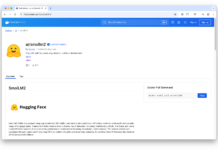Expert Claims 2024 Betting Odds More Accurate Than Polling: Insight from CNN Politics
In the fast-paced world of political forecasting, a fresh perspective has emerged that challenges conventional thinking about how best to predict election outcomes. A recent segment on CNN Politics, which has been trending heavily on Google search today, highlights the growing belief that betting odds might be a more reliable indicator of electoral success than traditional polling methods.
The Expert’s Viewpoint
Harry Crane, a professor at Rutgers University, has sparked significant discussion with his assertion that prediction markets—platforms where individuals can bet on the outcomes of future events—offer a more accurate gauge of electoral prospects. According to Crane, "The data shows if you wanted a single best predictor, one source of information to know what’s going on in the elections – it’s the prediction markets."
This statement comes at a time when confidence in traditional polling has been waning. Polls have faced criticism for their inability to predict outcomes accurately in recent elections, from the unexpected victory of Donald Trump in 2016 to the underestimation of Republican performance in the 2020 congressional races.
Why Betting Markets?
Betting markets aggregate the opinions of a wide array of individuals who stake their money on the outcomes they believe are most likely. These markets are thought to be highly efficient because they incorporate diverse information sources and viewpoints. Essentially, people are putting their money where their mouth is, which adds a layer of seriousness and consideration that might be missing in traditional polling.
Crane suggests that the financial stakes involved in betting markets incentivize participants to be more discerning and analytical, leading to predictions that are often closer to the mark. This is in contrast to polling, where respondents may not have as much at stake.
The Republican Angle
Crane also issued a cautionary note to the Republican Party, which he suggests should not become complacent based on current favorable betting odds. "They shouldn’t just spike the ball," he warns, indicating that while betting odds may offer a snapshot of current sentiment, they are not infallible and can shift rapidly with changing political dynamics.
The Broader Context
The growing interest in betting markets as a forecasting tool comes amid broader concerns about the reliability and methodology of traditional polling. Issues such as non-response bias, where certain types of individuals are less likely to participate in polls, and the increasing difficulty in reaching a representative sample of the population, have plagued pollsters in recent years.
Additionally, the rise of social media and other digital platforms has fragmented the information landscape, making it harder for pollsters to get a clear read on public sentiment. In this environment, the collective wisdom of the crowd, as captured by betting markets, appears to offer a compelling alternative.
What the Data Says
While betting markets have their skeptics, there is empirical evidence to support Crane’s claims. Studies have shown that these markets often outperform traditional polls, particularly in close races. For example, research from the University of Pennsylvania found that betting markets were better predictors of election outcomes than polls in several recent election cycles.
Moreover, betting markets have the advantage of being continuously updated, providing a real-time snapshot of public sentiment. This dynamic nature allows them to capture shifts in voter opinion more quickly than periodic polls.
The Reaction
The idea that betting markets could be a more accurate predictor than polls has generated a range of reactions. Some political analysts welcome the shift, arguing that it offers a more nuanced and immediate read on voter sentiment. Others, however, caution against over-reliance on any single forecasting method.
Nate Silver, founder of the data journalism website FiveThirtyEight, has pointed out that while betting markets can be useful, they are not without their flaws. "Betting markets are influenced by the same biases and information gaps that affect other forms of forecasting," he notes, adding that they should be considered as one tool among many.
Conclusion
As we approach the 2024 elections, the debate over the best way to predict outcomes is likely to intensify. While traditional polling will undoubtedly remain a key component of political analysis, the growing interest in betting markets suggests that these platforms may play an increasingly important role in shaping our understanding of electoral dynamics.
For anyone keen on following the latest developments in this evolving field, the insights from Harry Crane and the ongoing analysis by experts in the area provide valuable perspectives. Whether you’re a political junkie, a data enthusiast, or just someone interested in the future of election forecasting, this is a topic that promises to be both fascinating and consequential.
For more detailed information, you can refer to the original segment on CNN Politics here. This news has been highly trending on Google search today, reflecting the broad interest and debate it has sparked among the public and experts alike.


































